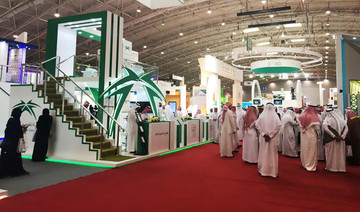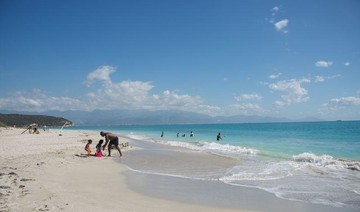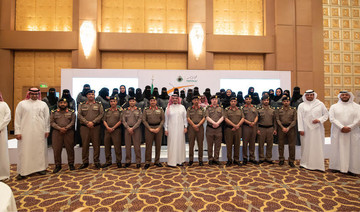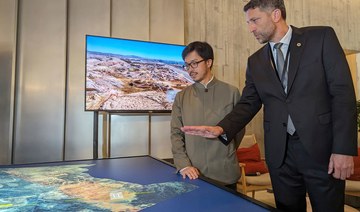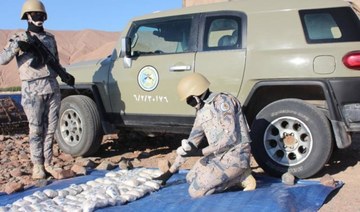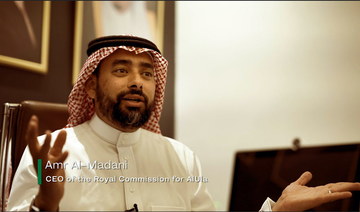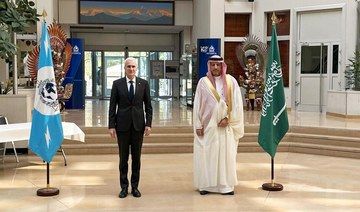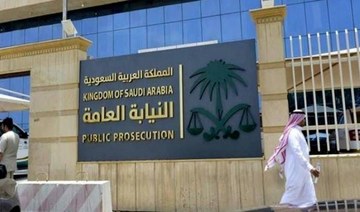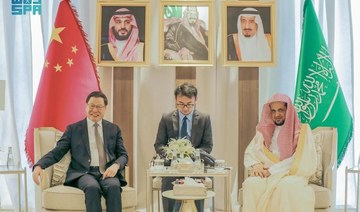JEDDAH: June 21 marked one year of Mohammed bin Salman as crown prince of Saudi Arabia.Since assuming the role, the crown prince, fondly known as MBS, has been working for the socioeconomic transformation of the Kingdom.
He is the architect of a wide-ranging plan for social and economic reforms known as Saudi Vision 2030, which aims to diversify the economy of the Kingdom and reduce its dependence on oil income.
Among the reforms envisaged in the Vision 2030 plan are the reopening of cinemas and allowing both sexes to attend concerts.
Another major development is the lifting of a ban on women driving. From June 24, women in Saudi Arabia will be able to take the wheel. The crown prince’s Vision 2030 reform plan seeks to elevate women to nearly one-third of the workforce, up from the current 22 percent.
In a statement issued to the Saudi Press Agency (SPA), Dr. Yousef bin Ahmed Al-Othaimeen, secretary-general of the Organization of Islamic Cooperation, said that as the architect of Saudi Vision 2030, the crown prince was inspiring the country’s youth and introducing structural changes to the Saudi economy and society.
Al-Othaimeen said that in one year he had taken many important initiatives at the national and international level and reinforced Saudi Arabia’s leading role in defending and supporting issues related to the wider Muslim world.
In this area, the OIC chief said, the most notable achievement was the creation of the Islamic Military Counter Terrorism Coalition.
Vision 2030 seeks to boost the Saudi non-oil based economy, and the large developments at the Red Sea, Qiddiya and NEOM, the futuristic mega city, are part of efforts to attract investors and promote the Kingdom’s tourism sector.
Saudi Minister of Telecommunications and IT Abdullah bin Amer Al-Sawaha said that the Kingdom is geared up to achieve the goals of socioeconomic transformation as envisaged in Vision 2030. He said that during the last year Saudi Arabia had achieved great success in this ambition.
Civil Services Minister Sulaiman bin Abdullah Al-Hamdan said that last year was characterized by many achievements. The Kingdom, he said, witnessed the continuation of the successful implementation of the crown prince’s Vision 2030, which covers all aspects of life.
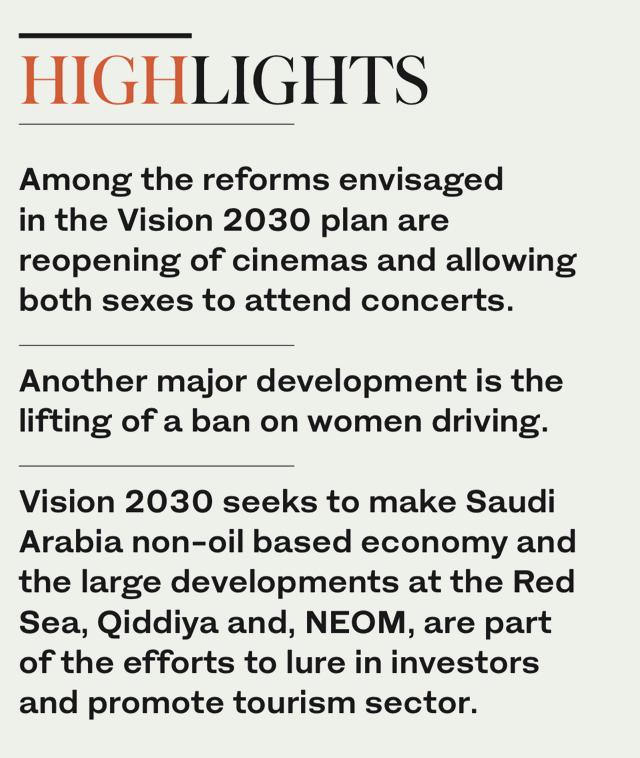 Saudi Education Minister Dr. Ahmed bin Mohammed Al-Issa said: “Our country is looking forward to a bright future in line with an ambitious vision. It is standing at the threshold of great transformation.”
Saudi Education Minister Dr. Ahmed bin Mohammed Al-Issa said: “Our country is looking forward to a bright future in line with an ambitious vision. It is standing at the threshold of great transformation.”
Saudi Arabia has also witnessed several unprecedented developments since Crown Prince Mohammed bin Salman began implementing his reform plans. In a bid to ensure transparency in the financial system to promote international investments, the Kingdom launched a drive to root out corruption from society without discrimination.
Saudi Justice Minister Dr. Waleed bin Mohammed Al-Samaani, who is also president of the Supreme Judicial Council, said that the crown prince is a leader whose impact has surpassed local and regional levels. He has emerged as one of the most influential figures at the global level, he said.
Islamic Affairs Minister Dr. Abdulatif bin Abdul Aziz Al-Ashiekh said: “The Kingdom’s Vision 2030 is a comprehensive national development program that seeks to achieve prosperity for the country. The crown prince has worked very hard to achieve many goals in record time.
“The Ministry of Islamic Affairs has received a great deal of support and attention from the crown prince to help fight extremist and deviant ideologies.”
The minister said that these efforts come within the framework of Vision 2030 to eradicate all sources of corruption.
MBS’s history of philanthropic initiatives has earned him many awards. In 2011, he established the Prince Mohammed bin Salman bin Abdul Aziz Foundation (Misk), which enables young Saudis to learn, develop and progress in the fields of business, literature, culture, science and technology, and sociology.
“The crown prince’s initiatives in relief and humanitarian work have been admired and praised by the UN and its related organizations,” said Dr. Abdullah Al-Rabeeah, general supervisor of the King Salman Humanitarian Aid and Relief Centre (KSRelief) and an adviser to the royal court.
Al-Rabeeah said that the crown prince had allocated $66.7 million to fight the cholera epidemic in Yemen, in addition to his efforts to help the needy throughout the world without discrimination.
He said that the crown prince had worked hard to build a new phase of progress and prosperity for the country with the help of the youth who are the core of the Kingdom’s future.
In recent years, the crown prince has become the government’s face of reform, modernization and change. In a country where about 60 percent of the population is under 30, the young crown prince is widely seen as an icon in the push toward socioeconomic reforms.
The crown prince also heads the Council of Economic and Development Affairs, which aims to establish a seamless mechanism to achieve Vision 2030 goals.
Saudi Arabia witnesses unprecedented achievements one year after MBS became crown prince
Saudi Arabia witnesses unprecedented achievements one year after MBS became crown prince
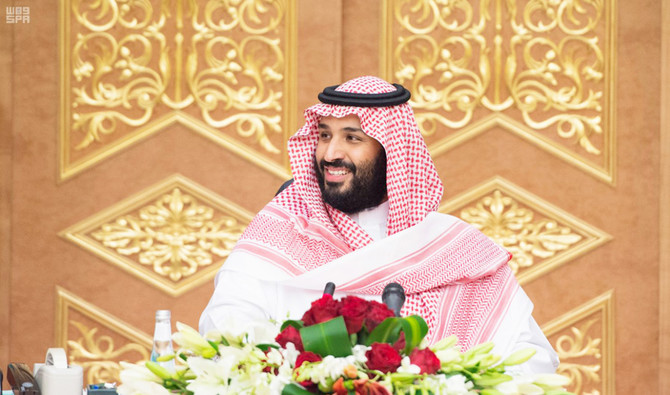
- Crown Prince Mohammed bin Salman is the architect of a wide-ranging plan for social and economic reforms known as Saudi Vision 2030
- Vision 2030 seeks to make Saudi Arabia non-oil based economy and the large developments at the Red Sea, Qiddiya and, NEOM, are part of the efforts to lure in investors and promote tourism sector.
Hareed Festival: A window into the heart of the Farasan Islands

- Annual event highlights tourism potential
Riyadh: The Farasan Islands, a string of coral islands nestled 40 km off the coast of Jazan in the Red Sea, have been abuzz with activity recently as they hosted the 20th Hareed Festival.
This vibrant annual event celebrates the arrival of parrotfish, also called hareed, in the islands’ shallow waters, the Saudi Press Agency reported on Sunday.
The islanders have cherished this event for generations, transforming it into a social gathering that goes well beyond the arrival of the fish.

Visitors to the festival got a glimpse of the islands’ rich cultural heritage as it showcased the area’s unique customs, traditions, folk games, and handicrafts. It also focused its spotlight on Farasan’s remarkable tourism potential and historic sites.
Al-Dana provides one of the highlights. It is a captivating form of vocal art that is one of Farasan’s oldest folk traditions. It forms a poignant expression of longing, a result of the hardships endured by sailors on extended pearl-diving expeditions. The challenges faced by these brave men fueled the art form, which is deeply rooted in Farasan’s cultural identity.
The annual festival also gives an opportunity for Farasan residents to display their traditional handicrafts. Visitors can watch the making of fishing traps and nets, the intricate weaving of palm fronds, the creation of bags and rugs, and hat knitting.
A designated area at the hareed fishing site catered to families and children. Visitors could experience the thrill of catching parrotfish using a traditional method that involved setting up barriers to prevent the fish from escaping. This competition, a centuries-old tradition, allowed families to connect with the region’s fishing heritage.

Farasan’s most renowned tourist attractions highlighted the islands’ potential for tourism.
Al-Qassar village, which is located only 5 km from Farasan Grand Island, is a popular tourist site. This heritage village, which is built of stone and palm leaves, is home to the archipelago’s largest palm oasis.
Al-Qassar has served as a summer retreat for Farasan residents. People travel by camel to spend a three-month break in the village during the season of Al-Asef, the northwestern summer wind that comes after the hareed fishing season.
Famous for its abundance of fresh groundwater, Al-Qassar village comprises around 400 houses. These unique dwellings, with stone walls and roofs made of palm tree planks, leaves, doum palm, or anisotes trisulcus branches, topped with algae and mud, are made by traditional building techniques designed to withstand the elements.
The Hareed Festival is a window into the heart and soul of the inhabitants of the Farasan Islands; a celebration of culture, tradition, and the islands’ natural beauty.
Saudi Border Guard arrest 4 attempting to smuggle qat

JAZAN: The Kingdom’s Border Guard in Al-Ardah, Jazan, recently arrested four Yemeni nationals attempting to smuggle 80 kg of qat into the country, the Saudi Press Agency reported on Monday.
Mostly chewed by users, Qat is a mild stimulant and illegal across most of the Arab world.
The government has urged citizens and residents to report any information they have regarding drug smuggling or sales to the General Directorate of Narcotics Control. Reports can be made by calling 911 for Makkah, Riyadh and the Eastern Province, and 999 for other regions. Alternatively, information can be emailed to [email protected]. All reports are treated confidentially.
KSrelief distributes food in Pakistan, drills solar-powered wells in Nigeria

DUBAI: KSrelief, Saudi Arabia’s aid agency, recently distributed 370 food baskets in the flood-hit Shangla district of Khyber Pakhtunkhwa province, Pakistan, benefiting 2,590 individuals.
The aid was a part of the fourth phase of the Kingdom’s Food Security Support Project in Pakistan 2024.
Last week, KSrelief, in collaboration with a civil society organization, initiated a project to drill six solar-powered medium-depth water wells in Kwara State, Nigeria. The wells, each at a depth of about 80 meters and equipped with tanks holding 5,000 liters, are for the benefit of 30,000 individuals.
The beneficiaries lauded Saudi Arabia for addressing their vital water needs.
Saudi anti-corruption authority reveals details of recent cases

- Spokesman said legal procedures had been initiated against all perpetrators
RIYADH: A spokesman for Saudi Arabia’s Oversight and Anti-Corruption Authority, also known as Nazaha, revealed on Sunday details of a number of criminal cases it recently investigated and prosecuted.
Outlining 20 of the most prominent corruption cases, he said legal procedures had been initiated against all perpetrators.
In one case, two Central Bank employees were arrested for receiving sums of money from a resident, who was also arrested, in exchange for depositing more than SR7.3 million ($1.95 million), without verifying the source, into bank accounts belonging to commercial entities over a two-year period.
In another case, a security officer working at the General Department of Traffic was arrested for receiving SR387,000 from the owner of a public services office, who was also arrested, in exchange for illegally amending the essential data of a group of vehicles.
One of the cases also highlighted involved an employee working at a university hospital who was arrested for receiving SR100,000 from citizens in exchange for a promise to employ them at the university.
Nazaha said it continues to work to identify and prosecute anyone in the Kingdom involved in the embezzlement of public funds, guilty of abuse of power and position for personal gain, or otherwise harming the public interest.
It stressed that guilty parties will be pursued and held accountable, and that there is no statute of limitations on such crimes.
Saudi, Bahraini public prosecutor meet in Manama
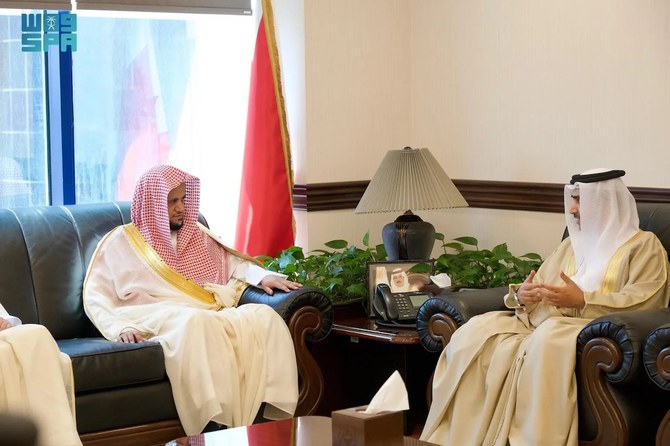
- Al-Mujeb highlighted the unwavering support the Kingdom's public prosecution receives from its leadership
RIYADH: Saudi Public Prosecutor Sheikh Saud bin Abdullah Al-Mujeb met with his Bahraini counterpart Ali bin Fadl Al Buainain in Manama, Saudi Press Agency reported on Sunday.
Al-Buainain welcomed Al-Mujeb and his accompanying delegation and expressed his delight at the visit, which he said signified the ongoing exchange of visits between the judicial bodies of the two nations and the sustained collaboration in combating transnational crime.
During the meeting, Al-Mujeb emphasized the deep-rooted historical ties between the Bahrain and the Kingdom and their continued advancement across various sectors, particularly in parliamentary cooperation and the exchange of information to ensure regional security.
He highlighted the unwavering support the Kingdom's public prosecution receives from its leadership, which he said enhanced the efficiency of its judicial processes.


